Search the Special Collections and Archives Portal
Search Results
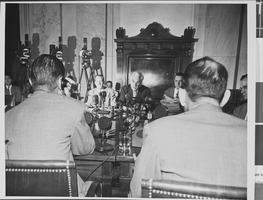
Photograph of Howard Hughes at hearing, Washington, August 09, 1947
Date
Archival Collection
Description
Image
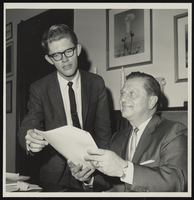
Howard Cannon is shown with George Clark, Senate intern: photographic print
Date
Archival Collection
Description
Image
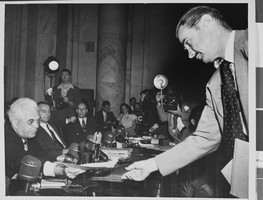
Photograph of Howard Hughes at hearing, Washington, August 07, 1947
Date
Archival Collection
Description
Image
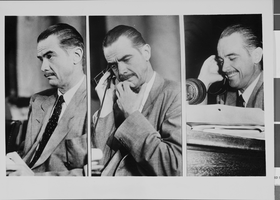
Photograph of Howard Hughes at hearing, Washington, August 08, 1947
Date
Archival Collection
Description
Image
Howard Hughes's HK-1 Hercules being guarded by police as the aircraft travels down a street in Culver City, California, 1946 June 16
Level of Description
Archival Collection
Collection Name: Howard Hughes Public Relations Photograph Collection
Box/Folder: Folder 21
Archival Component
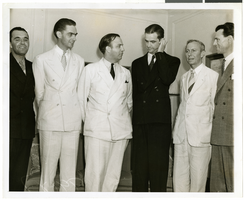
Photograph of Howard Hughes and a group of men, 1938
Date
Archival Collection
Description
Image

Transcript of interview with Howard & Dorothy Cannon by K.J. Evans, September 28, 1998
Date
Archival Collection
Description
On September 28, 1998, K.J. Evans interviewed former United States Senator Howard Cannon (born 1912 in St. George, Utah) about his life and political experiences. Also present were his wife, Dorothy Cannon, his daughter, Nancy Downing, and another participant identified as Caroline Rose. Cannon first talks about his family background and his parents’ occupations before mentioning his involvement in a music band and his pastime of flying aircraft. He then discusses his first political involvement and mentions his work for the Las Vegas City Attorney’s Office. Evans then asks about Cannon’s service with the Air National Guard and his combat experiences during World War II, specifically on D-Day. The interview then moves to a discussion on some of the work Cannon fulfilled as a senator, particularly military-based projects and black projects, and his work in creating Nellis Air Force Base. Evans later asks Cannon questions about his interaction with presidents, his thoughts on the Vietnam War, his support for civil rights, and his politically liberal stance as a lawmaker. Cannon also provides details on his relationships with Senators Walter Baring and Alan Bible, his interaction with Lyndon B. Johnson, and his campaign against Chic Hecht.
Text
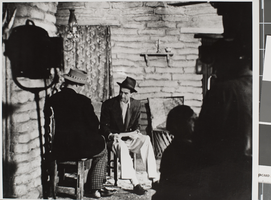
Photograph of Howard Hughes, circa late 1930s
Date
Archival Collection
Description
Image
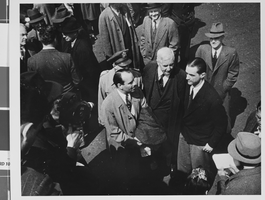
Photograph of Howard Hughes and others, circa 1943
Date
Archival Collection
Description
Image
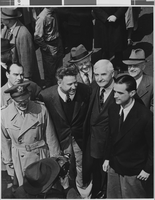
Photograph of Howard Hughes and others, circa 1943
Date
Archival Collection
Description
Image
